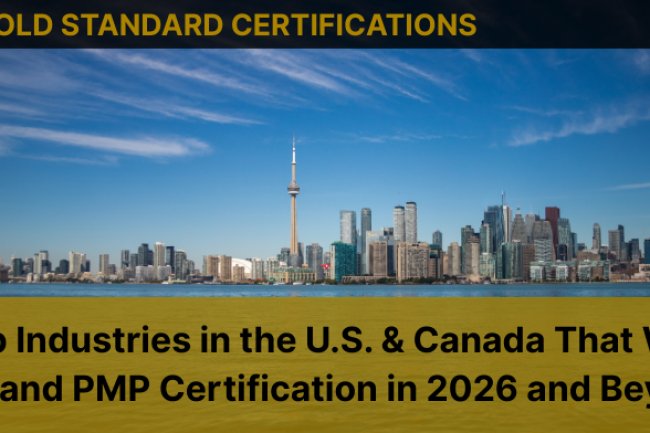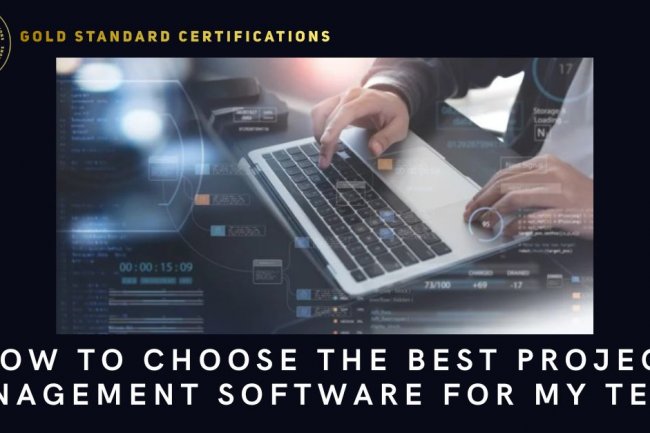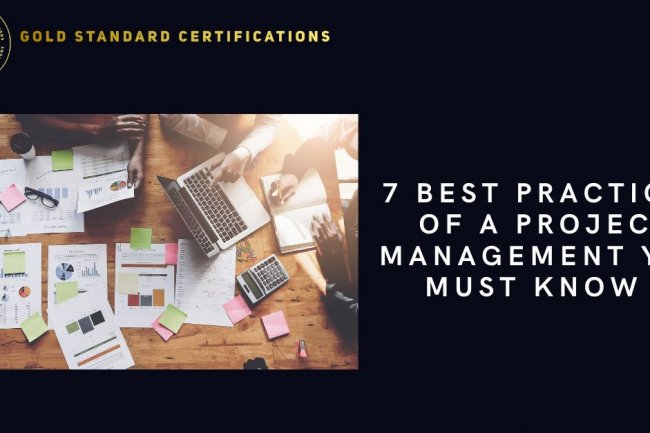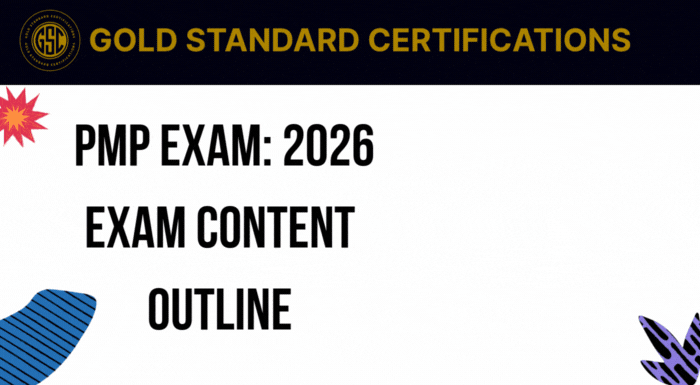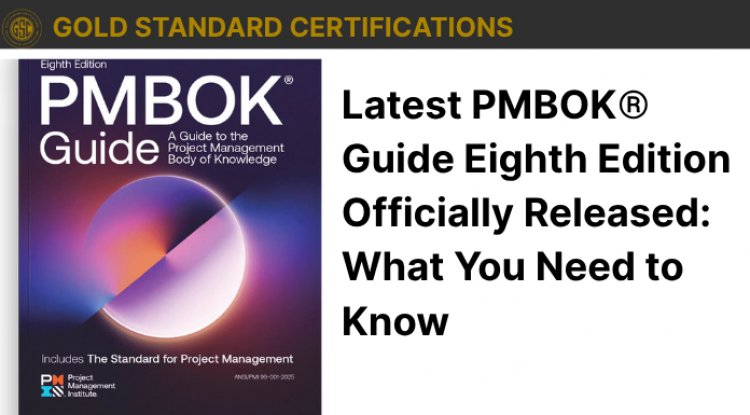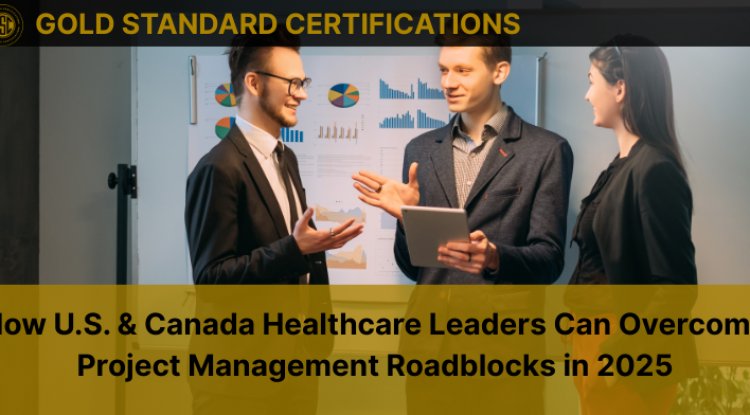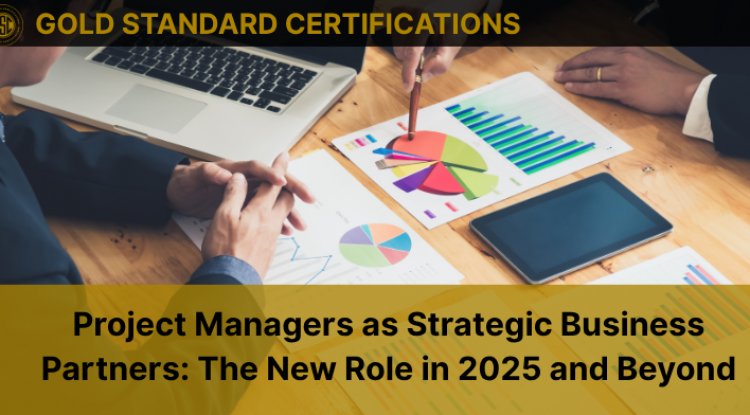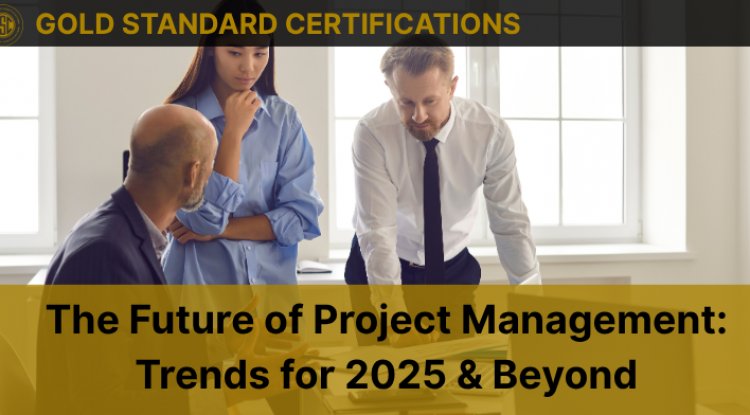Latest PMBOK® Guide Eighth Edition Officially Released: What You Need to Know
Explore the PMBOK® Guide Eighth Edition: 6 core principles, 7 performance domains, reintroduced processes, AI & sustainability focus and why this matters for modern project delivery.
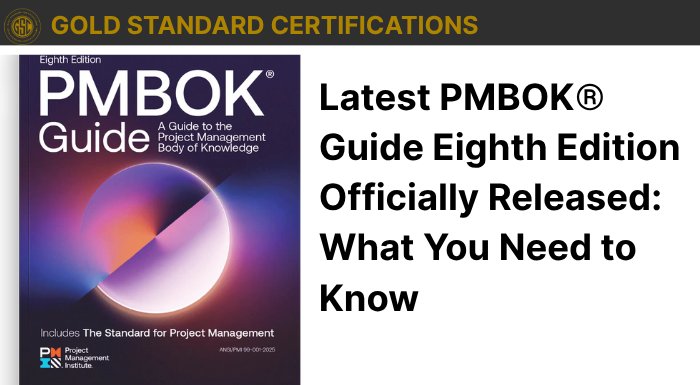
Latest PMBOK® Guide Eighth Edition Officially Released: What You Need to Know
Introduction
The world of work is evolving and with it, the standards we use to guide how we deliver projects. The Project Management Institute (PMI)’s PMBOK® Guide is the global reference for project-management best practices, and the release of the Eighth Edition marks a major step forward. Whether you’re a project manager, business analyst, product owner, team lead or professional who supports projects, this update matters.
In this post, we’ll unpack what’s new, how it shifts from the 7th Edition, why it’s highly relevant to today’s work, and practical steps you can take to apply it.
What’s New in the Eighth Edition of PMBOK® Guide
The Eighth Edition is backed by more than 48,000 data points and extensive community feedback, making it one of PMI’s most evidence-driven updates.
Key Changes in the Eighth Edition
Six Core Principles
The guide is now built around six refined principles:
• Adopt a Holistic View
• Focus on Value
• Embed Quality into Processes and Deliverables
• Be an Accountable Leader
• Integrate Sustainability
• Build an Empowered Culture
Seven Performance Domains
The new domains represent key areas of practice: Governance, Scope, Schedule, Finance, Stakeholders, Resources, and Risk.
Process Groups Reintroduced
Unlike the 7th Edition, the Eighth Edition brings back process groups and integrates them with the performance domains in a flexible, non-prescriptive structure.
Focus on Emerging Topics
The guide includes deeper coverage of AI, sustainability, modern PMOs, procurement strategy, and data-driven decision-making.
Integrated Structure
The new edition connects the “why,” “what,” and “how” by combining principles, performance domains, and actionable processes, offering clarity for both strategy and execution.
Publication Timeline
The Kindle edition is expected on November 13, 2025, and the paperback version is expected in January 2026.
Key Differences: 7th Edition vs 8th Edition
| Aspect | 7th Edition | 8th Edition |
|---|---|---|
| Principles | 12 project-management principles | 6 refined, actionable principles |
| Performance Domains | 8 domains (Team, Stakeholders, Planning, etc.) | 7 domains focused on process-driven practice + outcomes |
| Processes / Methods | Less prescriptive, more conceptual | ~40 processes reintroduced, mapped to domains |
| Orientation | Value-driven, flexible, principle-based | Structural + flexible: value, business alignment, digital integration |
| Emerging Topics | Agile, hybrid | AI, sustainability, governance, modern PMOs |
| Practical Focus | High-level mindset and principles | Behavior + action + execution - more guidance on “how” to apply |
The Eighth Edition essentially combines the strengths of earlier editions (structured process guidance) with the newer mindset (principles plus adaptability) to produce a balanced and modern reference.
How the Updated Edition Helps Today’s Professionals
Whether you hold the formal title of “project manager” or you simply support project-based work, the Eighth Edition delivers real value.
Shared Language Across Professions
The updated principles and performance domains give you a common framework that is recognised globally. That framework helps align business stakeholders, team members and vendors around how work is done and how decisions are made.
Relevance to Hybrid and Agile Environments
Most organisations now operate across predictive, agile and hybrid models. The updated guide reflects this reality through updated processes and domains, making your role more effective and efficient in diverse environments.
Focus on Business Value
Delivering outputs is no longer enough. Organisations expect measurable value, strategic alignment and meaningful outcomes. The Eighth Edition emphasises this shift and gives you stronger language and methods to support it.
Modern Tools and Trend Integration
From AI-enhanced decision making to evolving roles of PMOs and procurement strategy the guide helps you stay current and credible in today’s fast-moving landscape.
Tailoring for Industry and Context
The guide supports adapting tools, methods and techniques based on your specific project environment, whether you’re in IT, construction, healthcare or marketing. The goal is not to force a single method but to help you choose what works.
Professional Growth and Credibility
Understanding and applying the latest standard shows leadership, strategic awareness and modern competence. Even if you’re not pursuing certification, this knowledge boosts your professional profile and gives you conversation currency.
What You Should Do Next
If you want to stay relevant, deliver better results and grow professionally in a project-driven world, now is the time to align yourself with the newest standards.
Here are actionable steps:
-
Familiarise yourself with the six core principles and seven performance domains. Use them as lenses for your current work.
-
Assess your current projects: How aligned are they with value delivery, empowered teams, digital tools and stakeholder integration?
-
Use the update as a conversation starter: Bring it up with your team, stakeholders or leadership as an example of how you’re staying current.
-
Explore training and education: If you want to deepen your knowledge or upskill, visit Gold Standard Certifications and check out their PMP Certification Training.
-
Apply one new idea this week: For example, adopt one of the principles such as “Integrate Sustainability” or “Build an Empowered Culture” in a current initiative and assess its impact.
FAQ
Q1: What are the six core principles in PMBOK 8?
They are Adopt a Holistic View, Focus on Value, Embed Quality, Be an Accountable Leader, Integrate Sustainability, and Build an Empowered Culture.
Q2: What are the seven performance domains in the Eighth Edition?
The domains are Governance, Scope, Schedule, Finance, Stakeholders, Resources, and Risk.
Q3: Why did PMI reintroduce processes?
To balance flexibility and structure. The Eighth Edition reintroduces roughly 40 processes to give practitioners practical execution guidance while maintaining a principle-based approach.
Q4: How does the new edition address AI?
It includes dedicated content on the ethical use of AI, practical applications, decision-making frameworks, and considerations for AI-driven environments.
Q5: Is the PMBOK® Guide – Eighth Edition available in print?
The digital version of the Eighth Edition is available, but the print (paperback) version is scheduled for release in January 2026 and is not yet available for purchase.
Q6: Is the PMBOK 8th Edition required for the PMP® exam?
As of now, the PMP® exam continues to be based on the Exam Content Outline (ECO), not any single edition of the PMBOK Guide. However, concepts from the Eighth Edition support several ECO domains and will help professionals strengthen their project management understanding.
Q7: Are Agile and Hybrid concepts still part of the Eighth Edition?
Yes. While the structure has changed, Agile, hybrid, and adaptive practices remain foundational. The Eighth Edition integrates them across domains and processes instead of listing them separately.
Q8: How does the Eighth Edition support AI-driven project environments?
The guide includes practical discussions about using AI for estimation, risk analysis, reporting, automation, predictive insights, and decision support, along with guidance on ethical and responsible usage.
Q9: What industries will benefit most from the new Eighth Edition?
Technology, construction, consulting, finance, product development, energy, and sustainability-focused sectors will find the new emphasis on digital practices, governance, and value alignment especially useful.
Q10: How does the new edition help PMOs improve performance?
The Eighth Edition provides clearer linkage between governance, processes, and value. This helps PMOs standardize workflows, strengthen portfolio visibility, support decision-making, and demonstrate strategic impact.
Q11: Are the 40 reintroduced processes the same as the 6th Edition?
No. Although some processes resemble the 6th Edition, they have been updated, streamlined, reorganized, and mapped to the seven domains to support modern delivery practices.
Q12: Will project managers need to change their templates or workflows?
Not necessarily. The Eighth Edition encourages tailoring. PMs can gradually align templates and workflows to the newer principles and domains without overhauling entire systems.
Q13: What is the biggest change professionals should pay attention to?
The strongest shift is the blend of principles + domains + processes- a structure that balances mindset, performance, and execution. This creates a more complete and adaptable project management framework.
Q14: Does the Eighth Edition replace the 7th Edition?
No. Similar to previous cycles, the 7th and 8th Editions complement each other. The 7th Edition focuses on principles and performance domains, while the 8th adds practical processes and execution.
Q15: How does the Eighth Edition address sustainability in projects?
The “Integrate Sustainability” principle guides project managers to consider environmental, social, and economic impacts when planning, executing, and closing projects ,making sustainability part of decision-making, not an afterthought.
Q16: Is the Eighth Edition suitable for beginners in project management?
Yes. The structure is more intuitive, with stronger process clarity and simpler principles. Beginners gain practical direction, while experienced PMs benefit from deeper governance and strategy links.
Q17: Can organizations use the Eighth Edition to build or mature their PMO?
Absolutely. The governance domain, reintroduced process groups, and focus on value help PMOs create standards, optimize delivery, improve reporting, and align projects with organizational strategy.
Q18: How does the Eighth Edition improve communication across teams?
The combination of shared principles and domains offers a consistent vocabulary, helping teams reduce misunderstandings, make faster decisions, and improve alignment across departments and stakeholders.
Q19: Does the Eighth Edition include templates?
No, but it provides clearer guidance on tailoring processes. Organizations can create or refine templates that align with the principles and domains described in the guide.
Q20: Is the Eighth Edition more aligned with real-world project challenges?
Yes. It includes updates related to AI, sustainability, digital ecosystems, governance, stakeholder behavior, rapid change, and modern risk management - all based on 48,000 data points and practitioner insights.
Conclusion
The PMBOK® Guide Eighth Edition is more than just a revised edition, it is a reflection of how work has evolved in the modern era of project delivery. It places greater emphasis on principles, domains and real-world execution rather than waiting for a rigid process to play out. It is relevant for all professionals who deliver or support projects.
By embracing this update you position yourself to work smarter, align better, deliver stronger results and speak the language of modern project management. Whether you’re leading projects or part of a team, your awareness and application of this standard sets you apart. When you’re ready to elevate your skills or consider formal certification, the resources at Gold Standard Certifications are there to support you.
